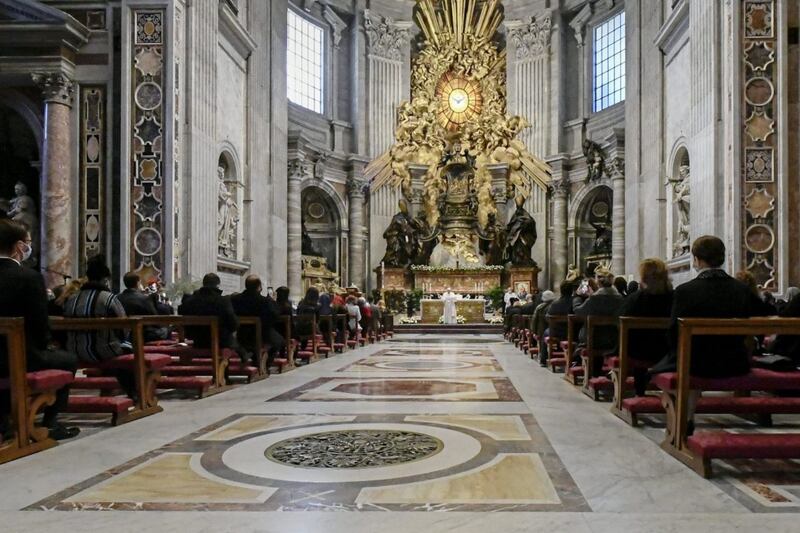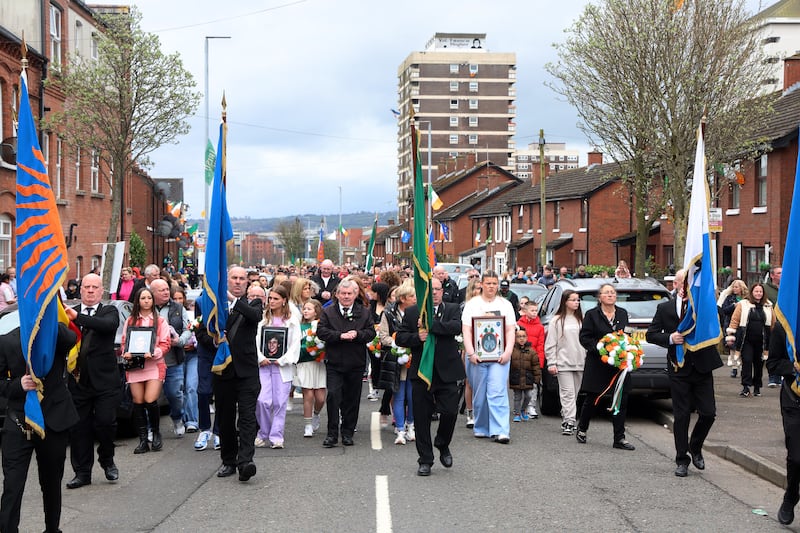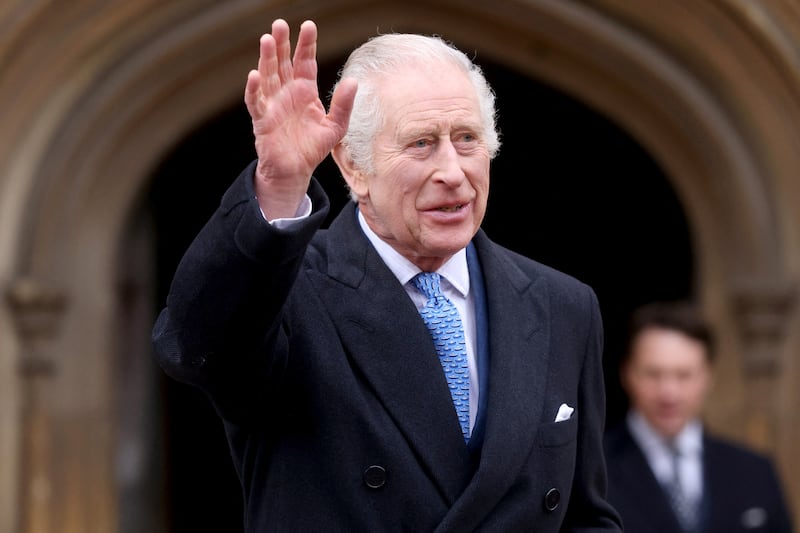CHRIST is risen; he is risen indeed. And this Easter, once more he speaks to us, we, whom he calls, his brothers and sisters.
He says, "listen to the women". Who are these women that we should listen to them?
They are those who, on the Good Friday, stood at Calvary, with Mary, the mother of Jesus.
We know their names: Mary of Magdala; Mary, the mother of James; and Salome. The risen Lord says: "Listen to these women; they are my witnesses."
But who really are these women? Can we make a connection with them?
There was Mary of Magdala, a victim of some serious affliction; we do not know if it was physical or spiritual, but we do know that she was healed by Jesus; Salome, wife of Zebedee, who was overambitious for her two sons; and Mary, the mother of James, of whom we know nothing more.
They were not from the first stratum of society; they, like us all, had their problems, but were, nevertheless, extraordinary women - in the way that most ordinary people are.
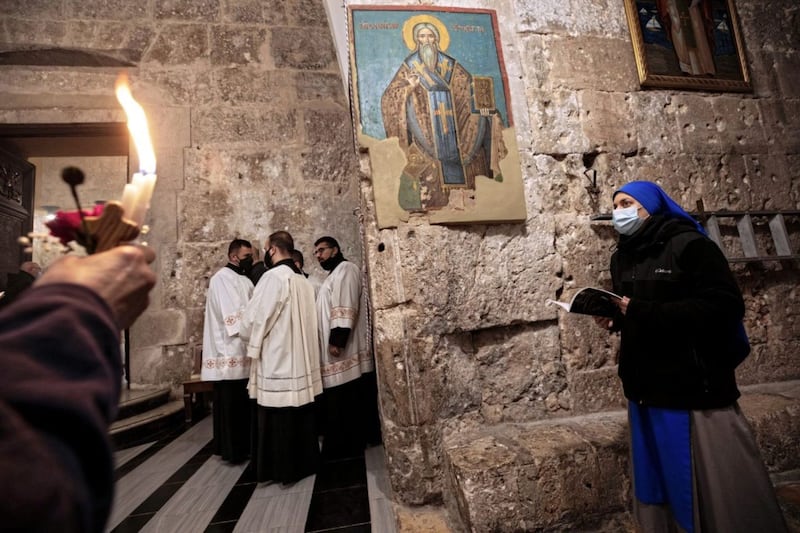
They demonstrate that, in God's kingdom, the most important people are those close to Jesus, because holiness is more radical than power; saints more significant than functionaries.
These women had followed Jesus from the beginning of his ministry, and had supported him with loving service.
They stood beneath the Cross when everyone else deserted him; they were with him when he was popular, and they remained by him when he was jeered and despised.
The Gospel tells us, that, after the Sabbath, they returned to anoint of his mutilated dead body - a sad task, but culturally essential, and they were willing to do it.
These three ordinary women are examples to us of resolute discipleship, and perseverance motivated by love.
And the risen Lord says: "Listen to these women; they are my witnesses."
Listen, as Peter, and the other apostles had to listen. We must listen to them, for they affirm that, regardless of who we are, we too can become incredible disciples.
We too can respond to the Lord's needs, whatever the circumstances - remembering that the Lord's needs are made known to us through the needs of others.
We too can be disciples, not only in the good times, but even in sad times when we are called to stand alone beneath the Cross.
The women teach us that such discipleship is not a burden but a joy, not oppressive but liberating, for it is then that the Lord says to us: "I no longer call you servants, but friends" (John 15:15).
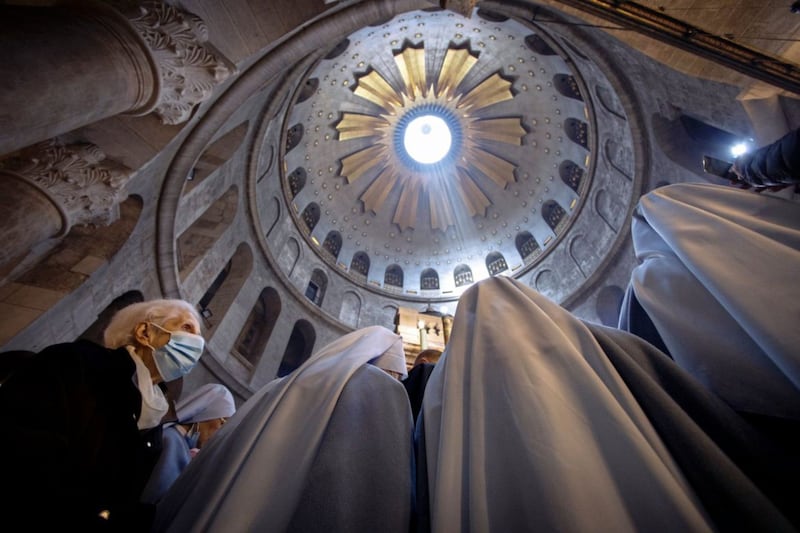
This Easter, it is the joy of our parish to welcome one, who asks to be received into full communion with us and to be confirmed in the Catholic faith.
Josi has chosen as her confirmation name, 'Abigail', the name of an early Irish saint renowned for her gift of healing.
It is also an ancient Hebrew name, meaning 'joy of the Father'. What an inspired choice.
Josi, you are indeed the joy of God our Father; may that knowledge always be your joy, for such spiritual joy is always a source of healing for others.
My friends, once more we proclaim the Easter message: "It is true. The Lord has risen."
But this proclamation, if it is to be truly a proclamation of hope for our society, must not be mere words written in a book, even if it is the Book of the Gospels.
It must be a living proclamation, written in our hearts and proclaimed by our lives.
So many people of our time - perhaps unconsciously - yearn to see and to hear Jesus Christ.
It is by the witness of our Christian lives that the face of the risen Lord will shine before them.
May the joy of this glorious Easter fill your hearts. Christ is risen; he is risen indeed; alleluia.
Fr Edward O'Donnell is parish priest of St Brigid's in Belfast.
